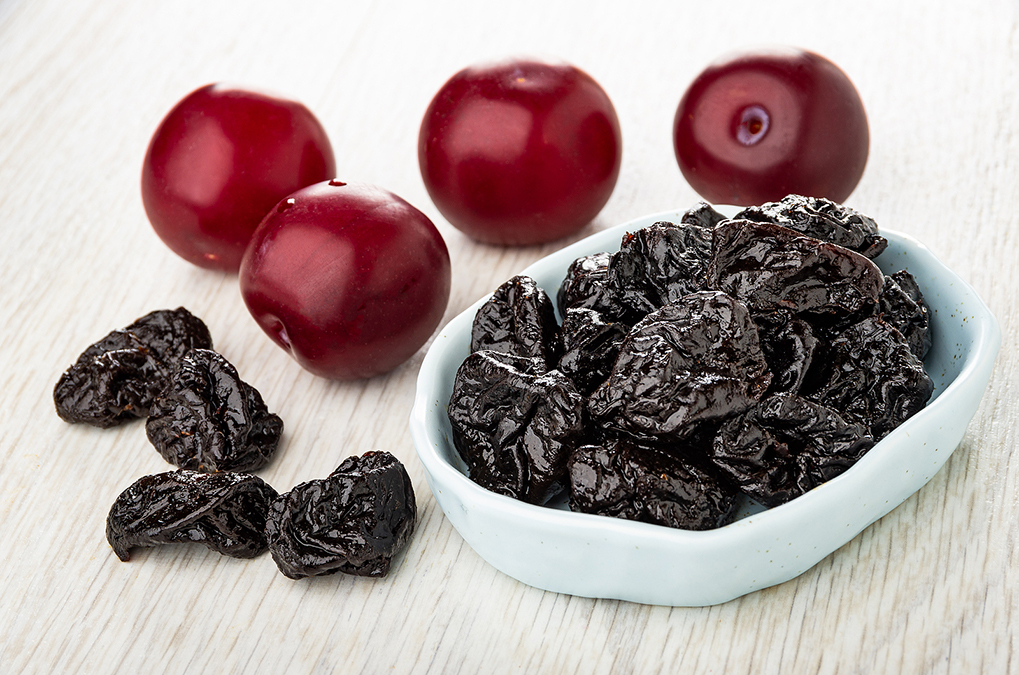 The traditional medical system has no effective treatments for osteoporosis. Once you get it, it keeps worsening year by year.
The traditional medical system has no effective treatments for osteoporosis. Once you get it, it keeps worsening year by year.
But a new study presented at the American Physiological Society annual meeting at Experimental Biology 2022 reveals an unexpected solution in the form of common fruit.
Best of all, this fruit is cheap and can be found dried in all supermarkets.
According to already available research, some polyphenols in plants can reduce levels of oxitive stress and inflammation in osteoclasts, the bone cells that break down bone so that new ones can be formed and, of most importance here, ensure that minerals from the old bones are reabsorbed into the new ones.
Estrogen is an anti-inflammatory hormone, especially present in the bodies of women, which is why it’s absence after the menopause often leads to a decline in bone mass.
Pennsylvania State University researchers conducted their study on postmenopausal women who had already lost some of their bone mass and whose bone mineral density was classified as being low.
They divided their participants into three groups: one that ate 50 grams of prunes (six fruits) per day, another that ate 100 grams (or 12 fruits) per day, and another that ate no prunes at all.
They continued to supplement their diets in this way for 12 months, before and after which the scientists examined blood samples for indicators of inflammation.
They noticed a significant decline in the levels of inflammatory markers from before to after the study in both the prune-eating groups, proving that 6 to 12 daily prunes can reduce the inflammation that accompanies aging and contributes to osteoporosis.
This study is consistent with previous studies that have found that around 10 prunes per day can reduce bone loss.
For example, in a 2017 edition of the journal Nutrients, researchers published a review of the existing literature on the effects of prune consumption on bone health, concluding that these dried fruits could indeed prevent bone loss.
In the past, researchers have speculated that this effect of prunes was because of their high vitamin K content. That can certainly play a role as it is well established that vitamin K is required for bone health.
But, if confirmed, this new study demonstrates that prunes may also perform their magic because of their anti-inflammatory polyphenols.

 Overcoming IBD
Overcoming IBD Multiple Sclerosis
Multiple Sclerosis Banishing Bronchitis
Banishing Bronchitis Gum Disease Gone
Gum Disease Gone Overcoming Onychomycosis
Overcoming Onychomycosis Neuropathy No More
Neuropathy No More The Prostate Protocol
The Prostate Protocol Brain Booster
Brain Booster
 Ironbound
Ironbound
 Solution for Shingles
Solution for Shingles
 The Bone Density Solution
The Bone Density Solution
 The Ultimate Healing Protocol
The Ultimate Healing Protocol
 The Parkinson's Protocol
The Parkinson's Protocol
 The Chronic Kidney Disease Solution
The Chronic Kidney Disease Solution
 Overthrowing Anxiety
Overthrowing Anxiety The Fatty Liver Solution
The Fatty Liver Solution The Hypothyroidism Solution
The Hypothyroidism Solution
 The End of Gout
The End of Gout The Blood Pressure Program
The Blood Pressure Program
 The Oxigized Cholesterol Strategy
The Oxigized Cholesterol Strategy
 Stop Snoring And Sleep Apnea Program
Stop Snoring And Sleep Apnea Program
 The Arthritis Strategy
The Arthritis Strategy The Vertigo & Dizziness Program
The Vertigo & Dizziness Program The 3-Step Diabetes Strategy
The 3-Step Diabetes Strategy Hemorrhoids Healing Protocol
Hemorrhoids Healing Protocol The Erectile Dysfunction Master
The Erectile Dysfunction Master Weight Loss Breeze
Weight Loss Breeze The IBS Program
The IBS Program The Insomnia Program
The Insomnia Program The Migraine and Headache Program
The Migraine and Headache Program The Neck Pain Solution
The Neck Pain Solution The Menopause Solution
The Menopause Solution The Ejaculation Master
The Ejaculation Master The TMJ Solution
The TMJ Solution The Acid Reflux Solution
The Acid Reflux Solution The Fibromyalgia Solution
The Fibromyalgia Solution The Psoriasis Strategy
The Psoriasis Strategy